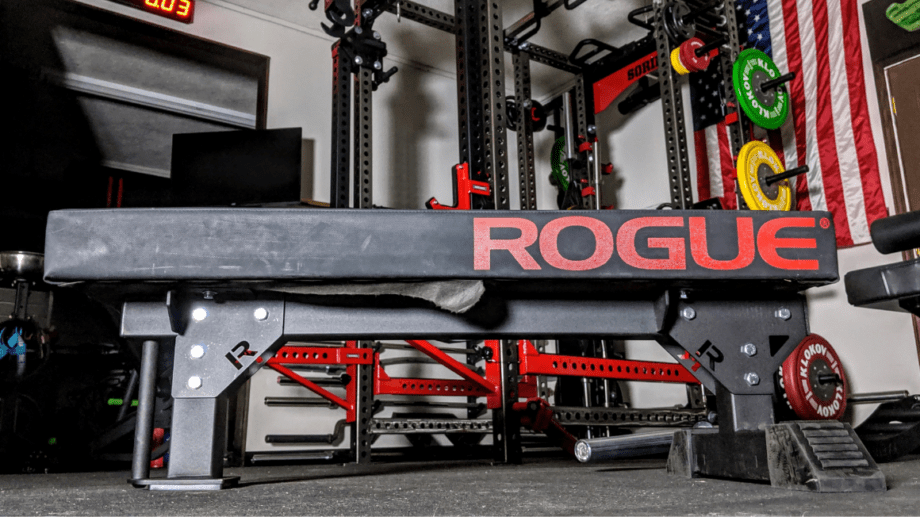Picture this: You’re in the middle of an intense workout, beads of sweat rolling down your face, and you reach for your trusty protein shake…only to realize it’s warm, heavy, and frankly, not what you need right now. Enter protein water—a refreshing beverage that’ll quench your thirst and fuel your gains without making you feel like you’ve just downed a sugar-laden milkshake.
So, what is protein water, and how can you incorporate it into your regimen? Whether you’re a seasoned athlete or just someone looking to boost their protein intake without the added calories, protein water can provide the building blocks to support muscle recovery. This comprehensive guide will unravel the fitness world’s latest innovation by detailing its benefits, ingredients, and potential downsides so you can level up your hydration game one sip at a time.
RELATED: How Many Protein Shakes A Day Should You Consume?
As a certified personal trainer (CPT) and nutrition coach who’s tried plenty of shakes and bars over the years, I’ll break down everything you need to know about this unique product. Let’s dive right in!
What Is Protein Water and How Is It Made?
Protein water is a relatively new product in the fitness and nutrition market. Essentially, it’s protein-infused water designed to provide a convenient and hydrating source of the most important macronutrient. Marketed as a low-calorie alternative to traditional protein shakes, it often comes in a variety of flavors in a ready-to-drink (RTD) format.
How exactly do protein and H2O come together to form a beverage that supports muscle growth? Protein water is typically made by dissolving protein powder in water, ensuring it remains clear and light. The most common protein sources used are whey protein isolate and collagen.
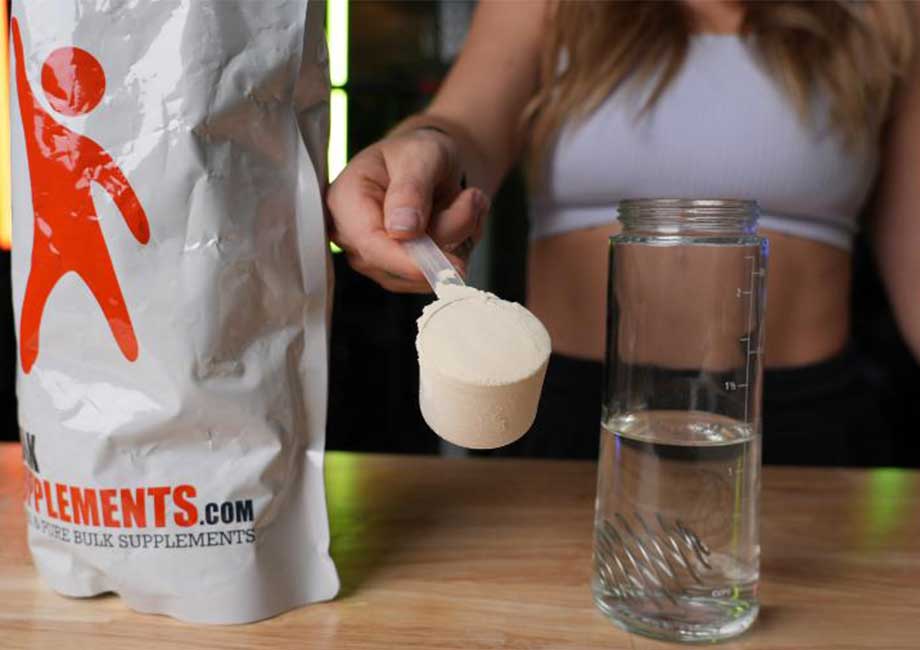
RELATED: Whey Protein Isolate Vs Hydrolyzed
Whey protein isolate is derived from milk and is known for its high bioavailability and rapid absorption, making it ideal for post-workout recovery. Conversely, collagen protein comes from animal connective tissues and is known for its benefits for skin, joints, and overall structural health. Since your body’s natural collagen production process slows down with age, older adults must find ways to get it into their diet.
Manufacturers often add electrolytes, vitamins, and sweeteners like sucralose to enhance taste and nutritional value. The process ensures that this protein drink remains low in carbs and sugars, making it suitable for those watching their carbohydrate intake or trying to lose weight.
Benefits Of Protein Water
Adding protein water into your diet can provide several benefits. Let’s look at the rewards you can reap by consuming it.
Helps With Hydration and Electrolyte Balance
Protein water provides hydration and often includes electrolytes like magnesium and calcium, which are essential for maintaining fluid balance and preventing dehydration during intense workouts. Rather than sipping on a sugary sports drink for hydration or relying on food sources like bananas or leafy greens for electrolytes, you can get the best of both worlds (plus extra protein) by taking the RTD route when in a pinch.
Convenient Protein Source
Depending on the manufacturer, one serving of protein water typically contains 15 to 20 grams of protein, making it a convenient way to boost your protein intake without needing heavy meals or shakes. This can be particularly beneficial for those with busy lifestyles or limited time for meal preparation.
RELATED: Plant Protein Vs Animal Protein
Supports Muscle Recovery and Growth
The amino acids in protein water, particularly essential amino acids like leucine, play a crucial role in muscle recovery and growth. Consuming protein water post-workout can help accelerate the repair process and ensure you get enough protein to fuel your gains.
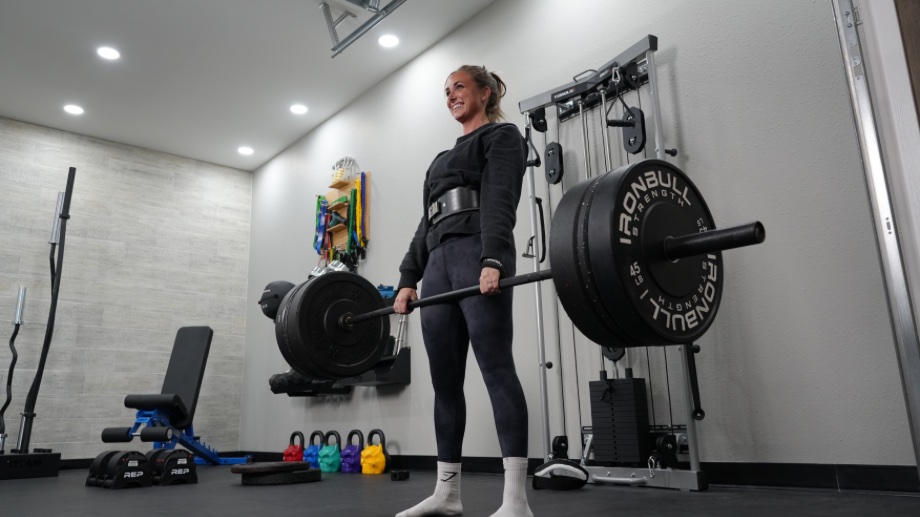
It’s Lower in Calories
For those aiming to reduce calorie intake to manage their body weight, protein water offers a low-calorie alternative to traditional protein shakes. It provides the necessary building blocks for muscle recovery without the added sugars and carbohydrates you’ll often see in smoothies, shakes, and bars.
Can Help Support Weight Loss
High-protein diets have been shown to support weight loss1 by promoting satiety and reducing overall calorie intake. In addition to quality food sources like beef, chicken, eggs, and Greek yogurt, protein water can be a valuable addition to your diet as you work on trimming body fat.
RELATED: Best Time To Drink A Protein Shake For Weight Loss
What Ingredients Are In Protein Water?
The ingredients in protein water can vary by brand, but common components include:
| Ingredient | Benefits |
| Whey protein isolate | Supports muscle recovery and growth and is easily digested |
| Collagen | Supports healthy skin, joints, muscles, and overall structural health |
| Amino acids | Essential for muscle repair and growth |
| Electrolytes | Help maintain proper hydration and electrolyte balance, which is critical for workout performance and recovery |
| Sweeteners | Enhances flavor without adding calories |
| Natural flavors | Improves taste |
| Vitamins (B-complex, Vitamin C) | Supports overall health and energy levels |
These ingredients work together to provide a hydrating, protein-rich beverage that supports your health and fitness goals.
How To Use Protein Water To Support Your Fitness Goals
There are many ways to incorporate protein water into your wellness routine. From before you hit the gym to after you’ve smashed a strength training session, here’s how to use protein water to your advantage.
Pre-Workout Hydration
Consuming protein water before a workout can help ensure you are hydrated and have an initial boost of protein to support muscle endurance and performance. You could even pair it with your favorite pre-workout supplement to get the added benefits of caffeine and other ingredients that fuel performance.
RELATED: The Ultimate Guide To Creating An Optimized Pre-Workout Smoothie
Post-Workout Recovery
Drinking protein water after a workout provides the necessary protein and amino acids for muscle repair and growth. Meanwhile, the electrolytes help replenish what’s lost through sweat, aiding in faster recovery.
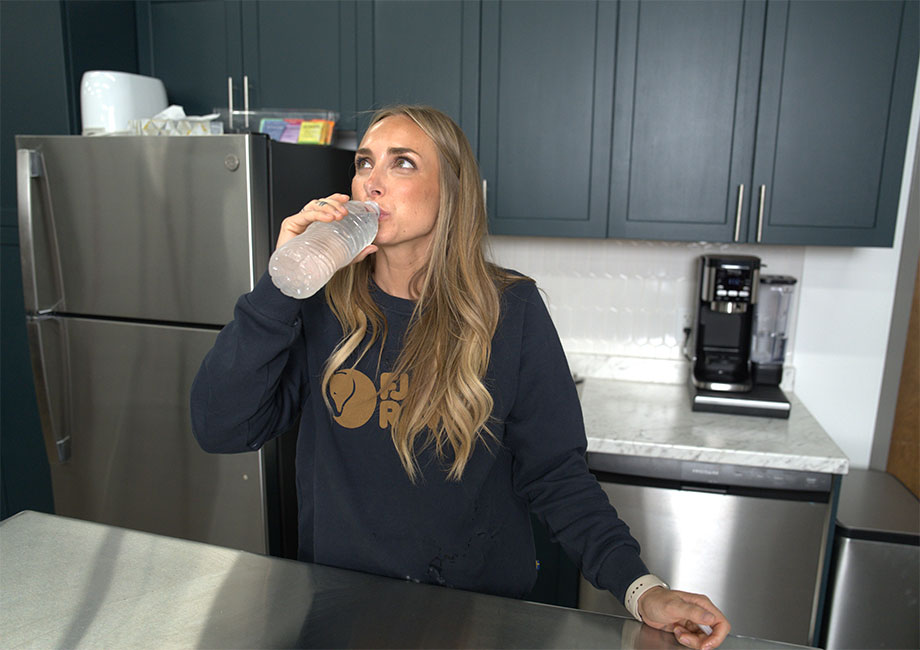
Mid-Day Snack
As a low-calorie, high-protein beverage, protein water can serve as a healthy midday snack to curb hunger and keep your protein intake consistent throughout the day. Whether you sip on one while on the road or down a bottle between meetings, protein water can be a nutritious, guilt-free snack.
RELATED: Protein Snack Ideas
Weight Management
Incorporate protein water into your diet as a low-calorie, protein-rich drink that can help you feel fuller for longer and reduce the temptation for unhealthy snacks.
Potential Downsides of Protein Water
While protein water offers numerous benefits, there are some potential downsides to consider:
Can Be Costly
Protein water can be more expensive than other protein supplements or whole-food protein sources, which might not be ideal for those on a tight budget.
Limited Protein Variety
Most protein waters use whey protein isolate, a quick-digesting type of protein widely available in powder form. Although whey isolate is ultrafiltrated to have less lactose and may be tolerated by those with lighter lactose issues, individuals with higher degrees of intolerance or those following a vegan lifestyle have to avoid whey, which can make it more challenging to find a protein water that meets their dietary needs.
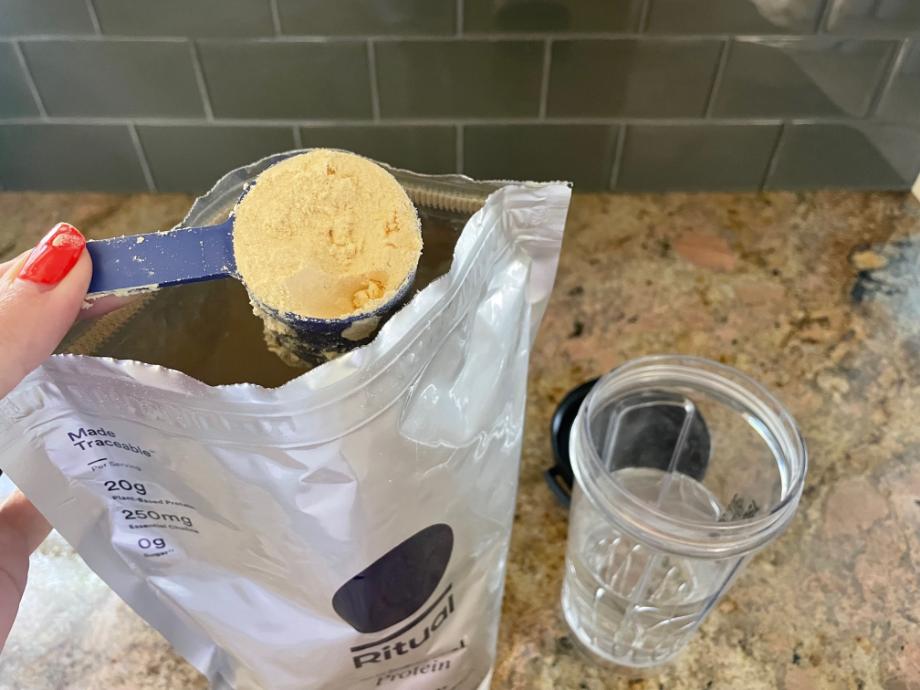
RELATED: Best Lactose-Free Protein Powder
Use Of Artificial Ingredients
Some brands use artificial sweeteners and flavors, which might not be suitable for everyone, particularly those sensitive to additives like sucralose.
Protein Water Vs Other Protein Supplements
While protein water is a fantastic option for many, it’s essential to understand how it compares to other protein supplements. Traditional protein shakes are known for their rich, creamy texture, tasty flavor, and high protein content, making them a popular post-workout option. However, they can be heavy and high in calories.
RELATED: Protein Bar Vs Shake
On the other hand, while the best protein bars offer convenience and are easy to carry around, they may contain added sugars, fats, and artificial ingredients. Protein powders provide flexibility, allowing you to mix them into various foods and drinks, but they require preparation and might not be as refreshing as protein water. Like bars, you must also pay close attention to the nutrition label to see if there are additives or fillers.
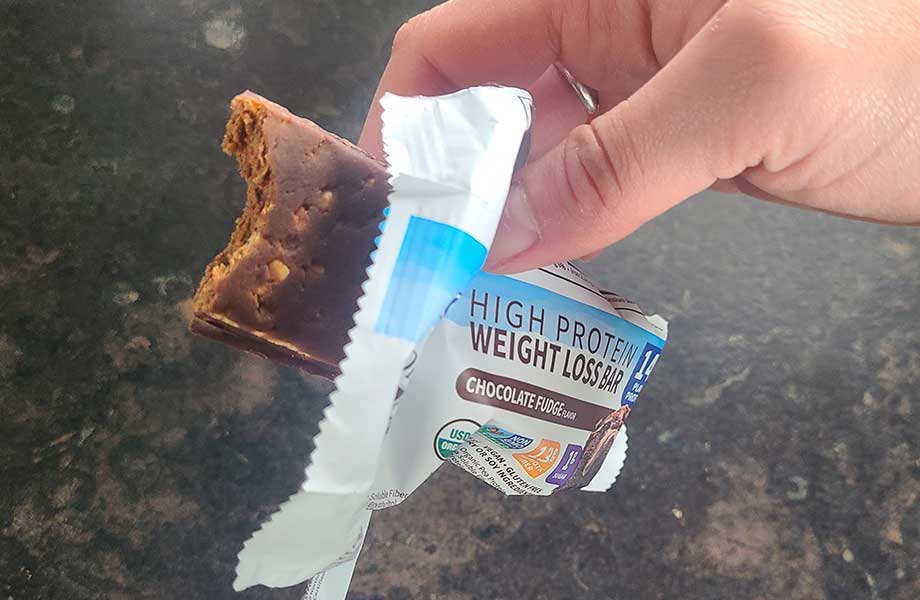
Meanwhile, protein water offers a unique blend of hydration and protein without the heaviness of shakes or the preparation required for powders. It’s an excellent option for those who need a quick, light, and hydrating protein boost, especially during or after intense workouts.
How To Choose The Best Protein Water
Not all protein waters are formulated the same. Before you load your virtual shopping cart and hit the checkout button, consider these factors:
Types Of Protein Used
Look for protein water made with high-quality protein sources like whey protein isolate or collagen. Ensure it fits your dietary preferences and any potential allergies.
RELATED: Types of Protein Powder
Nutritional Content
Check the label for the amount of protein, calories, and carbohydrates per serving. Opt for products with minimal added sugars and artificial ingredients.
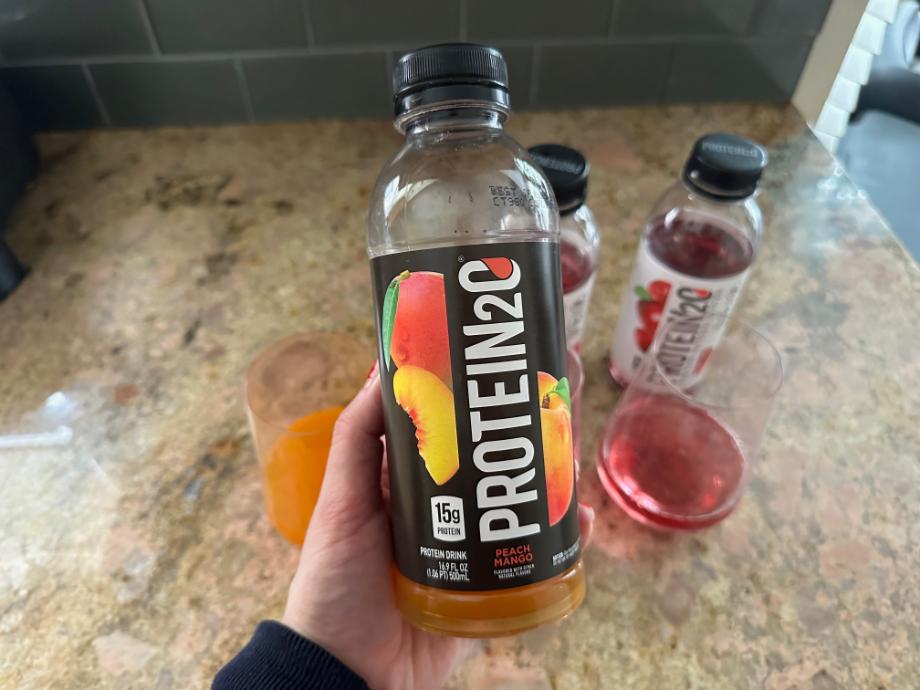
Flavor and Taste
Choose a flavor you enjoy, as this will make it easier to incorporate into your daily routine. Reading reviews or trying samples can help determine the best-tasting options.
Brand Reputation
Research the brand’s reputation and read customer reviews to ensure you’re choosing a trusted and well-reviewed product. Here are some popular protein water options to consider:
- Protein2o: Known for its variety of flavors and high-quality whey protein isolate.
- Trimino: Offers protein water with added B-vitamins and no sugar.
- BiPro Protein Water: Features 20 grams of protein per serving with zero carbs and fats.
- O2 Living: Provides protein water made from organic ingredients and natural flavors.
- Vital Proteins Collagen Water: Combines collagen peptides with natural fruit juices for added flavor and health benefits.
RELATED: Best Clear Whey Protein Drinks
Price and Availability
Compare prices and availability to find a product that fits your budget and is easily accessible. Some brands offer bulk purchasing options, which can save money in the long run.
What Is Protein Water? Final Thoughts
Although protein water may seem like just another fitness fad, I believe it’s bound to become even more popular as more people become aware of its usefulness. Low in calories, high in protein, and available in an RTD format, protein water is a convenient means of helping you stay hydrated and supporting your muscle-building journey.
What Is Protein Water? FAQs
Is protein water good for you?
Yes, protein water can be a convenient way to increase your protein intake, support muscle recovery, and stay hydrated. However, check the nutrition label for extra sweeteners or artificial ingredients before you sip.
How often should I drink protein water?
You can drink protein water one to two times a day, depending on your protein needs and dietary goals. However, getting most of your nutrients from whole food sources is still the best route.
Is too much protein powder bad for you?
Excessive protein intake can strain the kidneys2 and cause digestive issues. Be mindful of the ingredients in your protein powder and how much you consume so you can note any side effects.
RELATED: What To Look For In Protein Powder
Does protein water assist those aiming for weight loss?
Protein water can aid weight loss by promoting satiety, preserving muscle mass, and boosting metabolism.
What are the benefits of drinking protein water compared to traditional protein shakes?
Protein water is typically lower in calories and easier to digest, making it a lighter alternative to traditional protein shakes.
References
- Moon, J., & Koh, G. (2020). Clinical Evidence and Mechanisms of High-Protein Diet-Induced Weight Loss. Journal of obesity & metabolic syndrome, 29(3), 166–173. https://doi.org/10.7570/jomes20028
- Ko, G. J., Rhee, C. M., Kalantar-Zadeh, K., & Joshi, S. (2020). The Effects of High-Protein Diets on Kidney Health and Longevity. Journal of the American Society of Nephrology : JASN, 31(8), 1667–1679. https://doi.org/10.1681/ASN.2020010028




